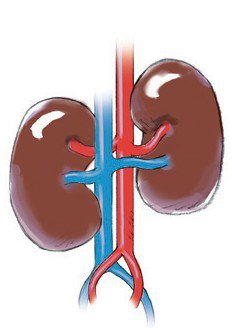Kidney transplant

Kidney transplantation is the transplantation for a patient with a terminal stage of chronic kidney disease of a healthy kidney from another person using surgery. The new kidney is placed in the abdomen and the patient’s kidneys are generally not removed. The kidney transplant will function instead of its kidneys, which are no longer working.
The transplant patient must be fully informed about all aspects of the transplantation. You can’t just transplant any kidney. The new kidney has to match several parameters with the tissue of a person who needs a transplant. Otherwise, the patient’s body will reject the new kidney as something alien. A lot of laboratory work is done to find the kidney.

Even years after successful transplants, there is a possibility of rejection. That is why patients with kidney transplants must take drugs (immunosuppressants) that suppress the immune system and prevent rejection.
A kidney for transplantation may be taken from a living related donor, such as a parent, brother, or sister. A kidney transplant is also possible from a deceased (deceased) donor if he or his relatives have not refused to provide organs for transplantation while alive.
In case of loss of transplant function dialysis therapy remains the treatment option.



